#1798 United Irishmen Rebellion
Text
Kilmainham Gaol
Kilmainham Gaol is one of the largest unoccupied gaols in Europe, covering some of the most heroic and tragic events in Ireland’s emergence as a modern nation from the 1780s to the 1920s. Attractions include a major exhibition detailing the political and penal history of the prison and its restoration.
Located approximately two miles outside of Dublin city centre, it was built as a county gaol to…
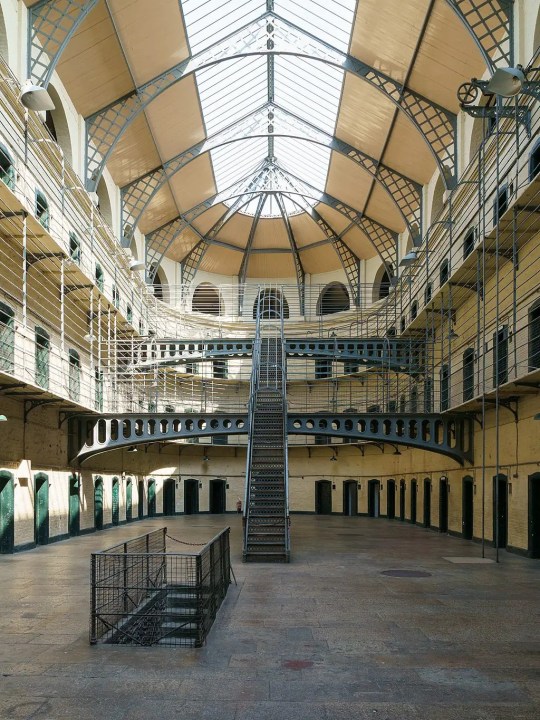
View On WordPress
#1798 United Irishmen Rebellion#1916 Easter Rising#Dublin#History#History of Ireland#Ireland#Irish Civil War#Irish History#Irish War of Independence#Kilmainham Courthouse#Kilmainham Gaol#Office of Public Works#OPW#Thomas Francis Meagher
27 notes
·
View notes
Note
Hi! So this is gonna sound weird, but I’ve kinda been learning about Irish history backwards? Like, I started with the Troubles (bc of family involvement), then back to the 1916 rising which got me more interested in the people involved which took me further back and etc etc. I know I’ve been doing it “wrong” but I’m just starting to come up to the 1798. Do you happen to have any recommended readings or particular persons of interest to read? Any collections of primary sources would be more than welcome!
Secondary sources I would recommend:
The Year of Liberty by Thomas Pakenham - about the rebellion in general
The People's Rising by Daniel Gahan - about the rebellion in Wexford
The Summer Soldiers by ATQ Stewart - about the rebellion in Ulster
Wolfe Tone: Prophet of Irish Independence by Marianne Elliott - about Wolfe Tone
The Life and Times of Mary Ann McCracken by Mary McNeill - technically this is just about Mary Ann but I think it's pretty good for Henry Joy McCracken too because there aren't many biographies of him
Orangeism in Ireland and Britain 1795 - 1836 by Hereward Senior - obviously exercise caution on whether or not you think you can mentally handle this subject but book about loyalism during 1798
Castlereagh: War, Enlightenment, and Tyranny by John Bew - about Lord Castlereagh
2 things that I would also recommend reading about for context are the French Revolution and the British radical movement of the late 18th century. for the French Revolution 1 book I would say is good is Liberty or Death by Peter McPhee and for the British radical movement... the book The English Jacobins by Carl B Cone does a good enough job
Primary sources:
The Memoirs of Theobald Wolfe Tone by Theobald Wolfe Tone - title is pretty self explanatory. It's Tone's account of his own life + his diary
The United Irishmen, Their Lives and Times by RR Madden - this is considered to be the 1st history of the rising & was written with the help of many people who lived through it, so it includes a lot of first hand accounts. HOWEVER. beware that Madden was your archetypical mid 19th century Catholic Irish nationalist and the bias created due to that shows through in every single part of these books
Memoirs of the different Rebellions in Ireland by Sir Richard Musgrave - this is another very early history of the rising, also written with the help of people who lived through, also including a lot of first hand accounts. HOWEVER. Musgrave is like Madden's Orange counterpart in that this book is also wildly biased and should also be read with a degree of caution
Personal Narrative of the "Irish Rebellion" of 1798, Sequel to Personal Narrative of the "Irish Rebellion" of 1798, and History and Consequences of the Battle of the Diamond by Charles Hamilton Teeling - 3 accounts of politics in Ireland in the 1790s written by someone who as a young man led the Catholic paramilitary the Defenders
The Drennan letters (a collection of letters that Belfast doctor William Drennan and his sister, Martha McTier, wrote to each other between the 1770s and 1820s), if you can find them, are another great primary source on both the United Irishmen & on what life was like back then in general, as are the McCracken letters, which I know are available free online somewhere I just can't remember where exactly I got the pdf from
There are a lot of them but if you're interested in primary sources you might also read some of the political pamphlets/books that were going around back then -- the most famous that come to mind in this context are Wolfe Tone's Argument on Behalf of the Catholics in Ireland, Thomas Paine's The Rights of Man, and Edmund Burke's Reflections on the Revolution in France but there are wayyy more than that and at least some of them are on the internet archive
194 notes
·
View notes
Text
youtube
#peter paul and mary#the rising of the moon#folk music#Irish resistance#Irish rebellion of 1798#name of 98#United Irishmen#Youtube
1 note
·
View note
Text
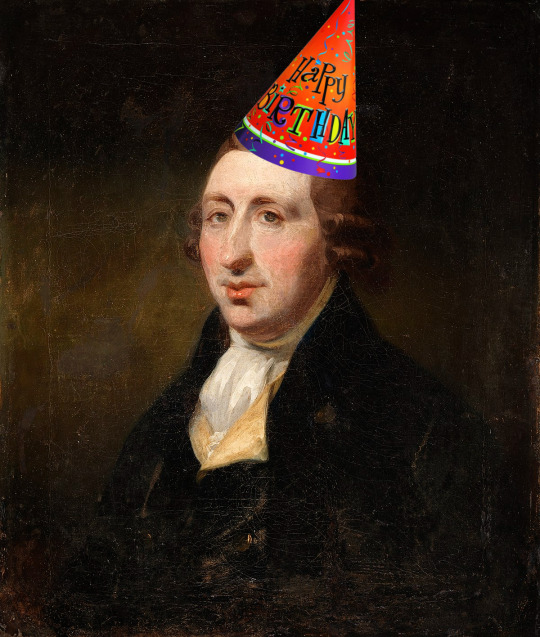
Happy birthday, Napper Tandy! (February 16, 1739)
A folk hero in Ireland, James Napper Tandy was born in Dublin to a merchant family. He was a political reformist who turned to revolution in order to secure Irish independence from British control. He was influenced by the French Revolution, and his activities and popularity led to attempted suppression by the government. He founded the Society of United Irishmen, a revolutionary organization, and planned a rebellion in exile with French support. In 1798 he returned to Ireland but was arrested after his revolution failed to occur. He was imprisoned until 1801, after which he was exiled once again to France, after Napoleon intervened in his case. He died in 1803, never again setting foot in Ireland.
140 notes
·
View notes
Text
Maidin Luain Cincíse
“Maidin Luain Cinchíse” is one of my favourite Irish songs. It was written by the Munster poet Mícheál Óg Ó Longáin (1766-1837). Earlier Irish poets tended to be supporters of Jacobitism; however, Ó Longáin was a staunch republican, and even served as a messenger in the United Irishmen. The song, which laments the failure of the 1798 uprising, likely draws from his own personal experiences. Ó Longáin’s disappointment at the failure of his home province to rise is also expressed. I feel that this closeness to the writer is what makes the song so powerful.
“Maidin Luain Cincíse” means “Whit Monday Morning”, and refers to the Monday after Pentecost Sunday (usually referred to in England and Ireland as “Whit Sunday” or “Whitsun”). If I’m correct, I believe this would have fallen on May 28th in 1798. On that day in Wexford, the rebels successfully captured the garrison town of Enniscorthy. I’m not sure why this date is mentioned, as the song is lamenting defeat rather than victory. The language used seems to describe a rural rather than urban battle, too. I don’t know where Ó Longáin fought during the rebellion, and this would be key to understanding the exact situation he references. If anyone could help me check the date, or find the exact battle described, I would be most grateful! The mention of Whit Monday may also contrast the active state of the rebellion with that of Munster. The only major rebel action in Munster did not occur until the Battle of the Big Cross, on June 19th.
This version, sung by Aoife Granville (a folklore lecturer at my university) is the one I’ll translate. It’s considerably shorter than the texts I’ve found elsewhere. In places, different words are substituted. I think its arrangement is beautiful. It has an expressive quality that other versions I’ve found lack.
Maidin Luain Cincíse, labhair an síofra sa ghleann.
Do bhailíodar na cága chun ábhacht a dhéanamh ann
Do chruinníomar na dtimpeall, ‘s do lasamar ár dtinte
‘S do thógamar ceo draíochta go haoibhinn os a gcionn.
Cá bhfuilid na Muimhnigh nó an fíor go mairid beo,
Ná cruinníd siad ‘nár dtimpeall is cabhrú linn sa ngleo?
Mar is deacair poirt do stríocadh ná clann búir do dhíbirt
Ónár mbailte dúchais dílis bhí ár sinsir riamh fadó...
Pentecost Monday morning, the síofra spoke in the valley.
The jackdaws assembled, to make their fun there.
We gathered around, and we lit our fires
And we took a magic mist, blissful, overhead.
Where are the Munstermen, or the living image,
Won’t they come into our midst and help us in the fight?
For it’s difficult to strike port, or drive out the boorish clan,
From the sweet, native towns our ancestors held long ago.
A particularly sad verse, not in this version:
Beir scéala suas chun Mumhan uainn, a rún ghil ‘s a stór,
Agus inis an scéal faoi chumha dóibh go bhfuil an sciúirse ‘nár gcomhair;
Mar is mó leanbh fireann fionn geal agus ainnir mhilis mhúinte
Agus ógfhear cliste lúfar san úir uainn ag feo.
Bear a story from us up to Munster, bright darling, treasure,
And tell the lonely tale to them that the scourge is among us
For there are many fair bright manly lads, and sweet schooled maidens,
And agile clever young men, rotting in the earth.
4 notes
·
View notes
Text
Events 10.14 (before 1950)
1066 – The Norman conquest of England begins with the Battle of Hastings.
1322 – Robert the Bruce of Scotland defeats King Edward II of England at the Battle of Old Byland, forcing Edward to accept Scotland's independence.
1586 – Mary, Queen of Scots, goes on trial for conspiracy against Queen Elizabeth I of England.
1656 – The General Court of the Massachusetts Bay Colony enacts the first punitive legislation against the Religious Society of Friends.
1758 – Seven Years' War: Frederick the Great suffers a rare defeat at the Battle of Hochkirch.
1773 – The first recorded ministry of education, the Commission of National Education, is formed in the Polish–Lithuanian Commonwealth.
1774 – American Revolution: The First Continental Congress denounces the British Parliament's Intolerable Acts and demands British concessions.
1791 – The revolutionary group the United Irishmen is formed in Belfast, Ireland leading to the Irish Rebellion of 1798.
1805 – War of the Third Coalition: A French corps defeats an Austrian attempt to escape encirclement at Ulm.
1806 – War of the Fourth Coalition: Napoleon decisively defeats Prussia at the Battle of Jena–Auerstedt.
1808 – The Republic of Ragusa is annexed by France.
1843 – Irish nationalist Daniel O'Connell is arrested by the British on charges of criminal conspiracy.
1863 – American Civil War: Confederate troops under the command of A. P. Hill fail to drive the Union Army completely out of Virginia.
1884 – George Eastman receives a U.S. Government patent on his new paper-strip photographic film.
1888 – Louis Le Prince films the first motion picture, Roundhay Garden Scene.
1898 – The steam ship SS Mohegan sinks near the Lizard peninsula, Cornwall, killing 106.
1908 – The Chicago Cubs defeat the Detroit Tigers, 2–0, clinching the 1908 World Series; this would be their last until winning the 2016 World Series.
1910 – English aviator Claude Grahame-White lands his aircraft on Executive Avenue near the White House in Washington, D.C.
1912 – Former president Theodore Roosevelt is shot and mildly wounded by John Flammang Schrank. With the fresh wound in his chest, and the bullet still within it, Roosevelt delivers his scheduled speech.
1913 – Senghenydd colliery disaster, the United Kingdom's worst coal mining accident, claims the lives of 439 miners.
1915 – World War I: Bulgaria joins the Central Powers.
1920 – Finland and Soviet Russia sign the Treaty of Tartu, exchanging some territories.
1923 – After the Irish Civil War the 1923 Irish hunger strikes were undertaken by thousands of Irish republican prisoners protesting the continuation of their internment without trial.
1930 – The former and first President of Finland, K. J. Ståhlberg, and his wife, Ester Ståhlberg, are kidnapped from their home by members of the far-right Lapua Movement.
1933 – Germany withdraws from the League of Nations and World Disarmament Conference.
1939 – World War II: The German submarine U-47 sinks the British battleship HMS Royal Oak within her harbour at Scapa Flow, Scotland.
1940 – World War II: The Balham underground station disaster kills sixty-six people during the London Blitz.
1943 – World War II: Prisoners at Sobibor extermination camp covertly assassinate most of the on-duty SS officers and then stage a mass breakout.
1943 – World War II: The United States Eighth Air Force loses 60 of 291 B-17 Flying Fortresses during the Second Raid on Schweinfurt.
1943 – World War II: The Second Philippine Republic, a puppet state of Japan, is inaugurated with José P. Laurel as its president.
1947 – Chuck Yeager becomes the first person to exceed the speed of sound.
1949 – The Smith Act trials of Communist Party leaders in the United States convicts eleven defendants of conspiring to advocate the violent overthrow of the federal government.
0 notes
Text
Irish Rebellion of 1798
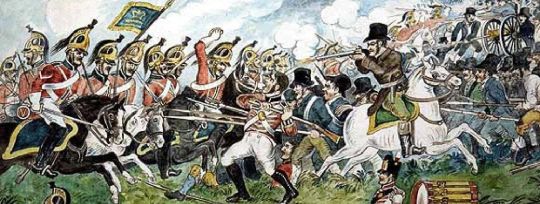
The Irish Rebellion of 1798 led by the United Irishmen against British rule begins.
0 notes
Text
A Useful Englishman
#Thomas #Paine #Monarchy
One of the greatest mistakes made by the British establishment was to consider the Irish stupid. Arthur O’Connor, a member of the United Irishmen and later a General in Napoleon’s army, when arrested on the eve of the Irish Rebellion of 1798, distributed the below poem before being led away to prison:
The pomp of courts and pride of kings
I prize above all earthly things;
I love my country;…
View On WordPress
0 notes
Note
What did England do to Ireland?
Oh boy, it's more like what they didn't do anon. Sit back as you'll be reading for a while.
From the late 12th century, the Anglo-Norman invasion of Ireland resulted in Anglo-Norman control of much of Ireland, over which the kings of England then claimed sovereignty. By the late Late Middle Ages, Anglo-Norman control was limited to an area around Dublin known as the Pale.
Enacted in 1494, Poynings law ensured that the Irish parliament could not meet without the approval of England's monarch and Privy Council. In 1541, English king Henry VIII changed Ireland's status from a lordship to a kingdom, and he was proclaimed King of Ireland.
The United Irishmen Rebellion of 1798 (which sought to end British rule in Ireland) failed, and the 1800 Act of Union merged the Kingdom of Ireland into a combined United Kingdom of Great Britain and Ireland.
In the mid-19th century, the Great Famine (1845-1851) resulted in the death or emigration of over two million people. At the time, trade agreements were controlled by the British government and whilst millions were suffering from hunger, Irish harvests of wheat and dairy products were exported to Britain and other overseas territories.
A Home Rule Bill was passed in 1912 but not brought into law due to the outbreak of World War I in 1914. The Easter Rising of 1916 resulted in the execution of the rebellion's leaders. In the 1918 Irish general election, Sinn Féin won a majority of Irish seats and in 1919 these elected MPs declared the independence of the Irish Republic. The Irish War of Independence followed from 1919 to 1921. The Government of Ireland Act of 1920 and the Anglo-Irish Treaty of 1921 resulted in the formation of the Irish Free State, while Northern Ireland's MPs opted out to form Northern Ireland.
And this is just some of it
0 notes
Text
A comparison of Robert Emmet's portraits on the grand occasion of his birthday
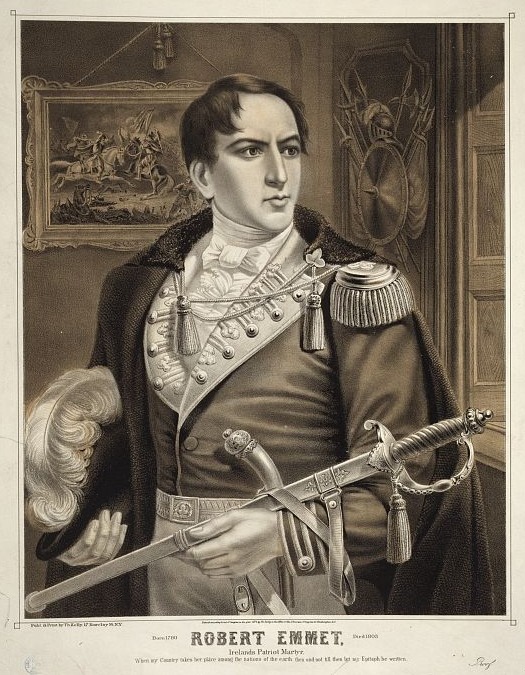
1. The most popular one (although usually cut out from the background), very majestic, but his face looks a wee bit weird
9/10
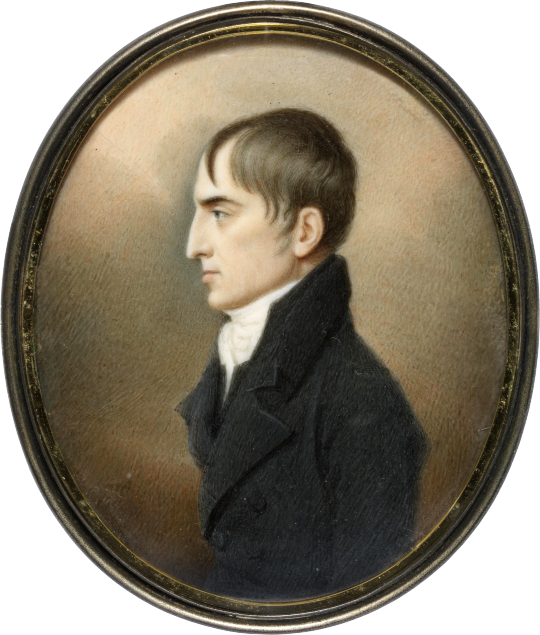
2. Also popular, but I don't understand why, it's ugly, for God's and Robert's sake, people, please use better ones
2/10

3. What a beautiful sad boi
10/10
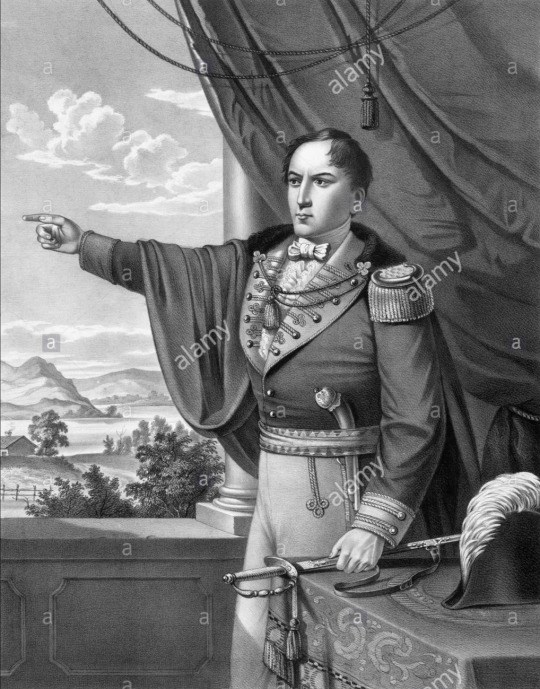
4. Just as majestic as the first one, but his face looks even weirder
8/10
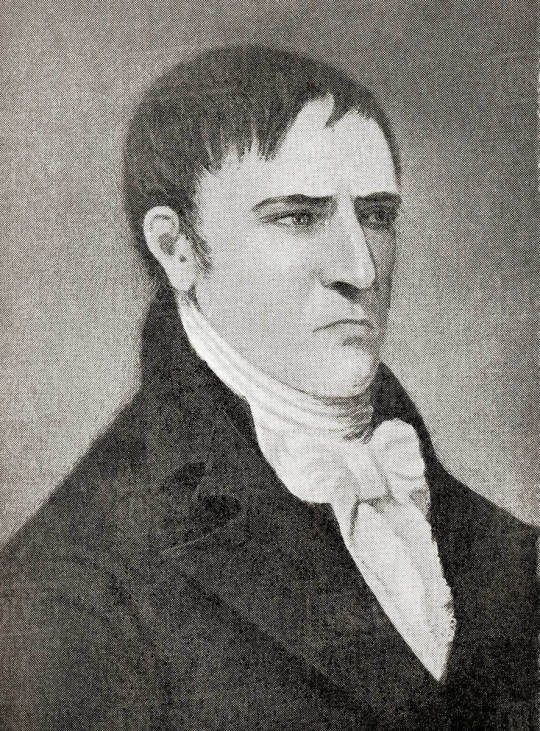
5. This is the exact look I get when after contemplating my life or checking my phone for a second in a maths class I look back at the blackboard and wonder what the feck happened there
He is elegant and all, but too ordinary
7/10
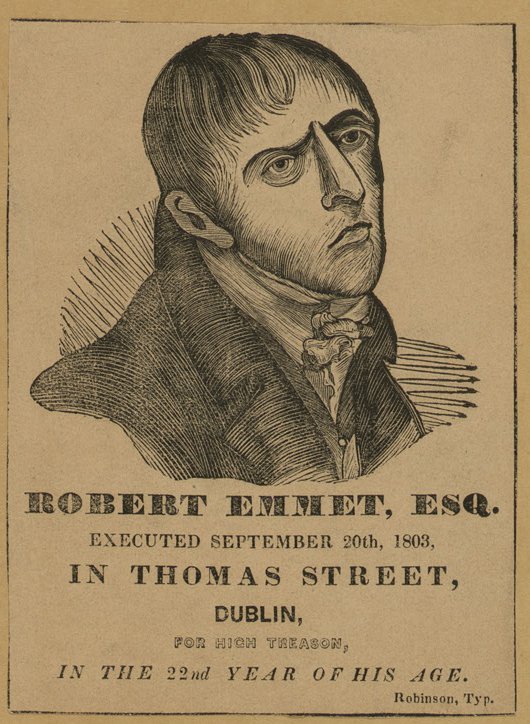
6. ........why would someone do this to him. just... why. don't.
(and wasn't he 25?)
0/10
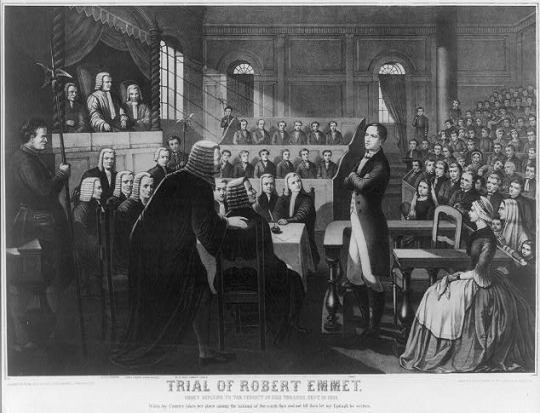
7. M a j e s t i c
10/10
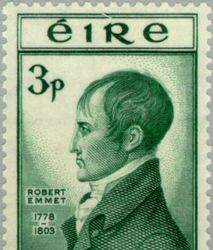
8. .....no.
-1/10
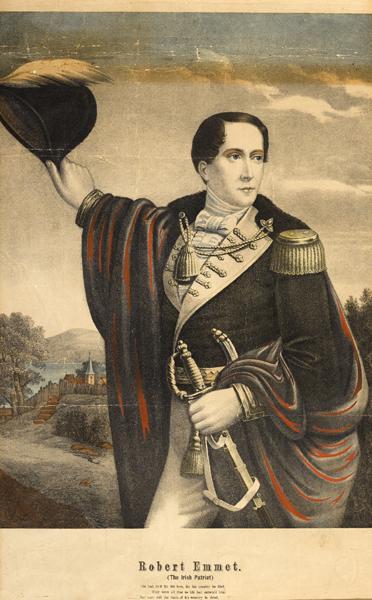
9. An absolute fashion icon, even if too napoleonic for my personal taste, and this makeup on his face...? very fancy
1803/10
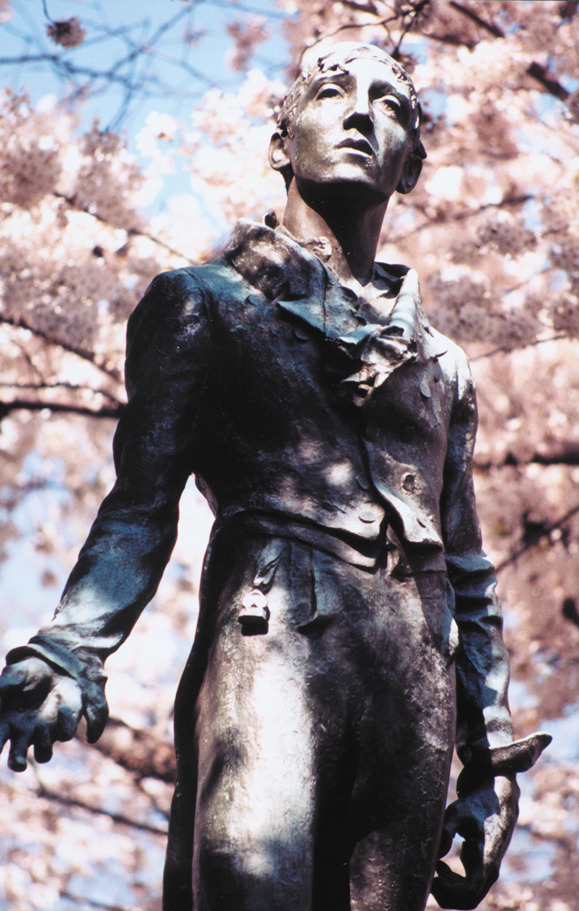
10. THIS is one of the most beautiful things I've ever seen. BLESSED.
20/10
(Apparently I've reached the limit of photos, but I am not done yet)
#Robert Emmet#Ireland#irish#Éire#1803 rebellion#Wexford rebellion#1798 united irishmen rebellion#should have posted it yesterday but apparently tumblr hates me and i had p r o b l e m s
26 notes
·
View notes
Text

The United Irish Patriots of 1798
Coloured lithograph (c. 1798)
4 notes
·
View notes
Text
#OTD in Irish History | 9 March:
1771 – Birth in Dublin of Thomas Reynolds, United Irishman whose information enabled authorities to arrest Leinster Committee in 1798.
1825 – The Catholic Association is dissolved in accordance with the Unlawful Societies Act. The Catholic Association was an Irish Roman Catholic political organisation set up by Daniel O’Connell in the early nineteenth century to campaign for Catholic Emancipation…
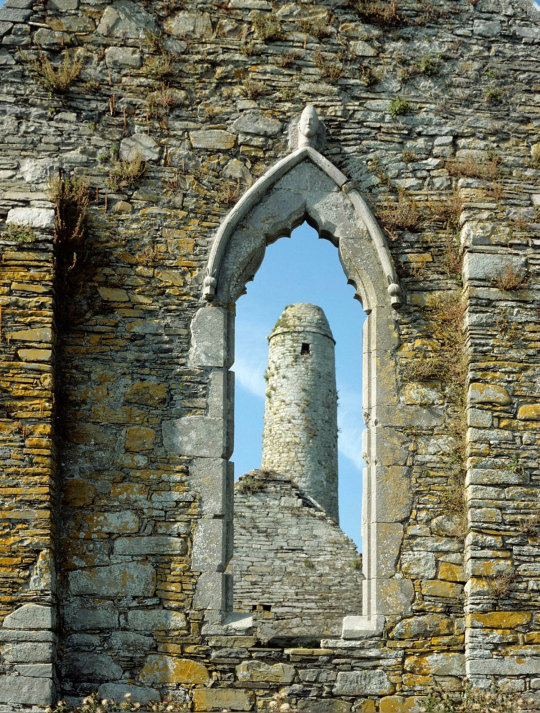
View On WordPress
#irelandinspires#irishhistory#OTD#1798 United Irishmen Rebellion#Éamon De Valera#Bobby Sands#IRA#Ireland#Irish War of Independence#Jack Harte#Mother Vincent Whitty
12 notes
·
View notes
Text
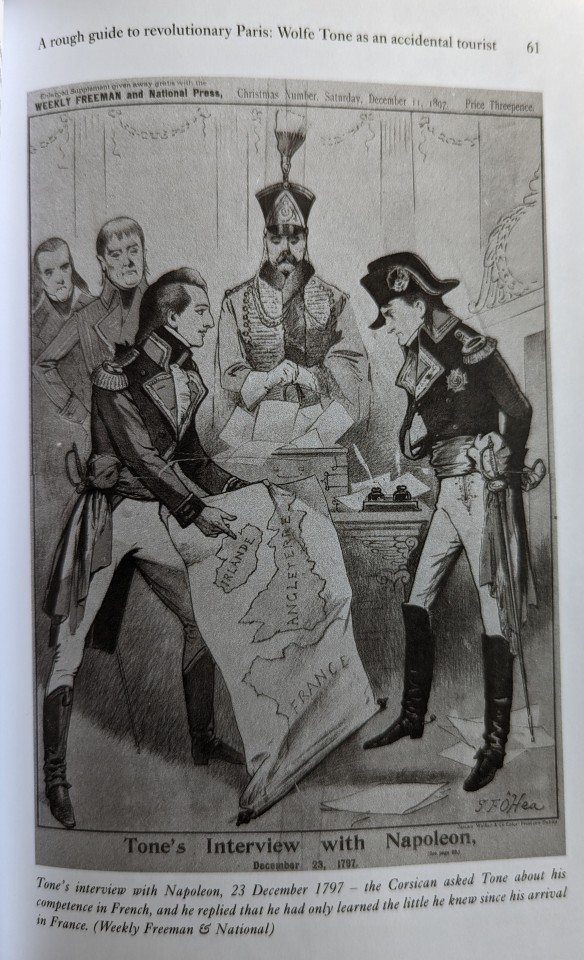
Look at this drawing of Wolfe Tone and Napoleon from 1807
202 notes
·
View notes
Text
Bodenstown
Bodenstown is located near Sallins in County Kildare and it is in the local cemetery there that Theobald Wolfe Tone was buried in 1798, after he had cut his own throat because he was told that he would not be granted the honourable execution normally given to soldiers. But, since that time, this site in Bodenstown has become the spiritual home of Irish Republicanism.
The Grave itself was…
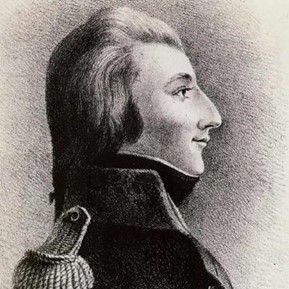
View On WordPress
1 note
·
View note
Text
THE SHEARES BROTHERS
The Sheares Brothers, Henry (1753–98), and John (1756–1798) were Irish lawyers and members of the Society of United Irishmen, who died in the 1798 rebellion.
THE SHEARES BROTHERS A PAINT-A-BOX TRIBUTE BY HUGH MADDEN
The Sheares Brothers, Henry (1753–98), and John (1756–1798) were Irish lawyers and members of the Society of United Irishmen, who died in the 1798 rebellion.
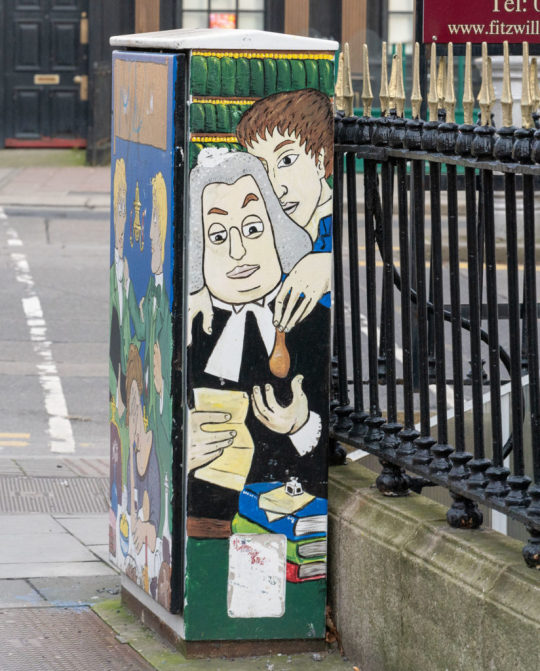

View On WordPress
#1798 rebellion#dublin canvas#Fotonique#Hugh Madden#Infomatique#Irish History#Paint A Box#Society of United Irishmen#street art#The Sheares Brothers#Urban Culture#William Murphy
0 notes
Photo
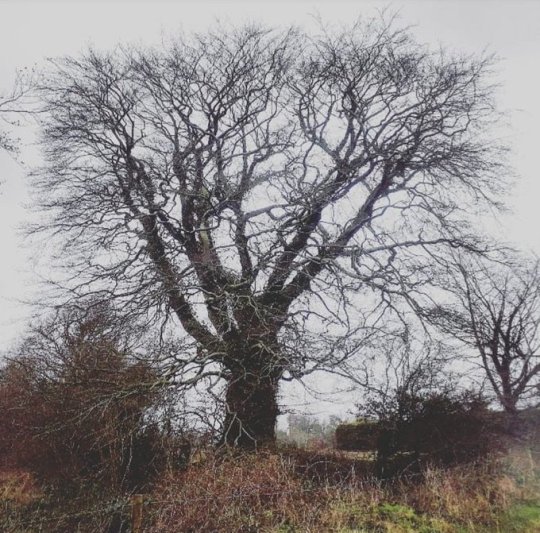
The stories it could tell... this ancient beech tree stands in the shadow of Vinegar hill. Its trunk is enormous, suggesting that it is several hundred years old, and was probably growing here when the United Irishmen rebellion raged in 1798
210 notes
·
View notes